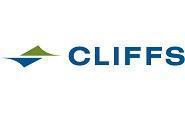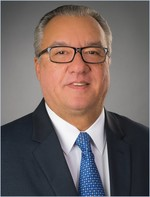Market Segment

August 24, 2021
SMU Steel Summit: Cleveland-Cliffs to Expand into Scrap 'Very Soon'
Written by Michael Cowden
Cleveland-Cliffs Inc. plans to expand into the scrap market – and is creating a new division for that purpose, the company’s top executive said.
The scrap division – Cleveland-Cliffs Services – will be spearheaded by Keith Koci, Cliff’s chief financial officer. More details about the venture will be made available in early September, Cliffs Chairman, President and CEO Lourenco Goncalves said.
 “I’m going into scrap. You know why? Because scrap is precious metal, particularly prime scrap. … And I want my piece of that,” he said.
“I’m going into scrap. You know why? Because scrap is precious metal, particularly prime scrap. … And I want my piece of that,” he said.
Goncalves made the comments during a fireside chat at SMU’s 2021 Steel Summit on Monday, Aug, 23.
He did not specify what kind of scrap operations Cliffs might be interested in or what the value of any deal or investment might be. But, he added, “I will be in scrap very soon.”
Nucor President and CEO Leon Topalian in a keynote presentation on Tuesday weighed in on Goncalves’s surprise announcement the day prior. “We’ve been there for a long time. He’s got a long way to go to catch up. So I wish him luck,” he said.
Nucor acquired scrap recycler The David J. Joseph Co. (DJJ) in 2008 for approximately $1.44 billion.
Goncalves also noted that Cliffs – which is thought of as an integrated steelmaker – already has a presence in scrap and experience operating electric arc furnaces (EAFs) thanks to its acquisitions of AK Steel and the former ArcelorMittal USA.
Cliffs’ Mansfield Works in Ohio sports two EAFs, its Butler Works in western Pennsylvania has an EAF as does its mill in Coatesville in eastern Pennsylvania.
And because companies like Cliffs and U.S. Steel operate both blast furnaces and EAFs, steel should be thought of as one industry instead of being divided between into separate integrated and minimill camps.
EAFs emit less carbon dioxide. “That’s a fact. It’s undeniable, and that’s why the entire world is going from blast furnaces to EAFs,” Goncalves said. But integrated steelmakers will remain necessary to produce the sophisticated steels needed by automakers today – and as far out 2027.
Also, Cliffs can say with confidence that steel will remain the dominant material in passenger vehicles because of R&D work already under way with automakers and because alternatives – especially aluminum and carbon fibers – emit more carbon, he said.
And Cliffs will make big strides in reducing emissions at its blast furnaces by, for example, charging them with hot-briquetted iron. That’s something that will be possible at Indiana Harbor No. 7 – the largest blast furnace in North America – once it comes back from a 45-60 day outage beginning on Sept 1, Goncalves said.
Cliffs might have added to its EAF portfolio had it acquired ArcelorMittal Dofasco. “But it takes two to dance. I wanted to buy. They didn’t want to sell,” he said of ArcelorMittal SA. Cliff’s acquisition of ArcelorMittal USA did not include parent company ArcelorMittal’s mills in Canada. And Goncalves said he is no longer interested in acquiring mills in Canada.
On the trade front, Goncalves again said that Section 232 tariffs and quotas were no longer necessary. Without them, Cliffs would not have built its DRI/HBI plant in Toledo, Ohio. The temporary protections were needed to allow such investments, but were never meant to be permanent. “It was a stopgap, and it worked very well,” he said.
Goncalves suggested that Section 232 tariffs and quotas could be replaced with a tariff rate quota,or TRQ. TRQs set a quota limit for imported steel from various countries. No tariff is applied to steel that comes in under that quota limit. But any tonnage above the quota ceiling is subject to a tariff.
By Michael Cowden, Michael@SteelMarketUpdate.com







